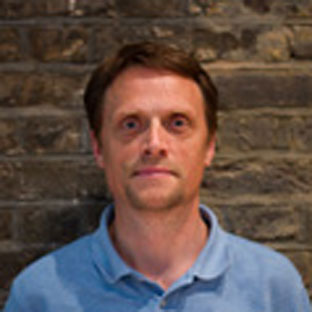Immy Kaur interviews Matthew Taylor shortly before he steps down as RSA Chief Executive
Immy Kaur is the founder and Chief Executive of Civic Square.
Matthew Taylor is the former Chief Executive of the RSA and Chief Executive of the NHS Confederation
Immy Kaur is the founder and Chief Executive of Civic Square.
Matthew Taylor is the outgoing Chief Executive of the RSA and next Chief Executive of the NHS Confederation
Immy Kaur: What has the past year been like for you?
Matthew Taylor: The past year has been an amazing and challenging and sometimes joyful and sometimes sad time for us all. I’ve got an eight-year-old daughter and I realise she’ll be talking about this when she’s in her 70s. She’ll sit around with her friends and they’ll say, do you remember 2020, do you remember the Covid years?
For the RSA, I think we’ve been fortunate in comparison to many other organisations. We’ve got reasonably stable finances and we’ve been able to ride the storm of losing our hospitality business; but it’s been really tough for the staff who work in that business, and for the people who work in RSA House.
Kaur: How has this year challenged or changed you, or confirmed or not confirmed some of the assumptions you had about the future?
Taylor: It’s too early to say what the long-term consequences will be. At the RSA, we’ve argued that this is a real opportunity for a reset, but then there are some people who say we just want to forget about it and go back to normal as quickly as possible. The reality is somewhere between those things. There are certain things that have happened that will change us. We won’t necessarily know what they are for some time, but then we’ll look back and realise Covid-19 was the turning point.
Human face-to-face contact is like vitamin C, you don’t notice that you need it until you’ve not had it for a long time and you start to get run down. We’re all going to realise, if we haven’t already, that it’s had a deeper impact on us. For instance, my wife has had long Covid, and that’s been really tough on her, and I’m also acutely aware of the fact that if you’ve been bereaved from Covid-19 over the past year that is a completely different experience as well.
The other really deeply significant thing that’s happened in the past year has been the Black Lives Matter movement. That has galvanised people.

Kaur: What are some of the big things we need to think about when it comes to emerging from Covid-19?
Taylor: There is a deeper understanding of inequality and a recognition of how hard we’re going to have to work to understand and challenge deep-set inequalities. That is going to persist. For example, if you look at what the NHS says, the emphasis now in all of their communication is on inequality, inclusion and access. There’s a real shift there. We have also had to think much more deeply about wellbeing, which coincided with a rising concern about mental health anyway.
The third thing is that it will be easier for politicians to argue for long-term investment around resilience. It will be harder for people to say let’s not worry about something that might never happen. How long that will last I don’t know, but certainly at the moment no one’s going to say we shouldn’t invest because there might never be another pandemic,
or we shouldn’t invest because climate change might never happen. That would not be a credible position any more.
Kaur: Tell me a little bit about what the Fellowship has looked to the RSA to do during this Covid-19 period.
Taylor: In terms of the RSA, there’s probably three really big things that have happened that wouldn’t have happened without Covid-19. The first is negative, and that’s been that RSA House and our hospitality business have had to close down, which has been tough on the colleagues working in that area.
But then there are two positive things. First, this notion of Bridges to the Future. We decided very early on that we were going to explore this relationship between crisis and change and we were one of the first out of the blocks in talking systematically about that. My colleague Ian Burbidge did some fantastic work based on the specificities of this and he developed some powerful ways of thinking about the changes that people made during Covid and whether or not those would or should last. It’s probably been one of the most powerful bits of intellectual property we’ve ever developed. It’s been used all around the world.
The second positive thing has been our funding for Fellows’ Covid-19-related projects. One of the things I’m proud of creating at the RSA is the Catalyst Fund, which is a sum of money made available to Fellows’ projects looking to make change in the world. We did a special round of funding to support Fellows’ initiatives related to the pandemic and we had some fantastic ideas coming through. We’re really proud of the way that Fellows have responded, and we’re proud of the way the RSA has taken this question of the relationship between crisis and adaptation and long-term change and brought some really quite powerful tools to thinking about that.
Kaur: You’ve transformed the Fellowship in your time as CEO. What was it like when you started in the role?
Taylor: If I was forced to choose one thing that I’m proud of as Chief Executive it would be the change in Fellowship. When I became Chief Executive, a model of Fellowship had emerged which, broadly speaking, made Fellowship feel like it was a reward for what you’d achieved in the past. A status symbol. There’s nothing wrong with giving people a sense of status, I just didn’t think it was what a charity should be doing.
We went on a journey to change the Fellowship so it was no longer seen as a reward for past achievements, but an invitation for future engagement. We made this shift and at first we did lose some Fellows but we soon began to put numbers on again and now we’ve got more than 30,000 Fellows; Fellowship numbers have risen even during Covid-19. What we know from our surveys is that these are Fellows whose commitment to the RSA is about values, it’s about their intentions for the future, it’s about wanting to work with other Fellows to make a difference. The Fellowship now is much more cohesive as a group of people who share broad values and a broad commitment to be impactful in the world.
I didn’t always get change right. I was too ambitious in the early stages and tried to do too much too soon. I have come to understand that some change takes time. You have to recognise that there will be good days and bad days and keep an eye on where you ultimately want to get to. And by the way, we’re not at the end of that journey. I still don’t think Fellows are as engaged as I’d like them to be. Although they really get the values of the RSA they don’t know as much about our actual research work as I’d like them to, which is one of the reasons we’re now working in a more programmatic way. We’ll stay in the same areas for several years so that Fellows can really get it.
Kaur: You’ve talked in the past about leaving your role in Number 10 because you felt the traditional way of making change was broken and you wanted to think about new models of change.
Taylor: When I was working in Number 10 and working for the Labour Party the world evolved around three Ps: pamphlets, press and politicians. You would produce research, produce policy, try to get it into the mainstream media – which meant a lot in those days – and you tried to get politicians to adopt it, and if you did that you’d succeeded. Over the years I became disenchanted with that, partly because it didn’t seem to achieve the changes I hoped it would achieve, partly because it didn’t engage people.
One of the things I was proudest of when I left government was having created the Children’s Trust Fund, which was the idea of a basic endowment that children got at birth and that their parents could then pay into. It was slightly more for poorer kids and it meant that every child at 18 would inherit a little bit of a nest egg.
After the 2010 election one of the first things the coalition cut was the Fund. I’m not making that point as a critique of the coalition; my point is: this was a policy that we should have won massive public support for. If we had that tide of support we probably would have held onto it, but it just came across as a nice paternalistic thing that we did.
I came to the RSA with a different way of thinking about change, and over the years I’ve tried all sorts of different formulations. My first annual lecture was about what I call pro-social behaviour. How could we recognise the importance of people’s voluntary behaviours? There was a lot of talk at the time about anti-social behaviour, so what about promoting pro-social behaviour?
I went through all sorts of different formulations and nearly every time, every formulation I had was too complicated. But the thing that has endured is this idea of thinking like a system and acting like an entrepreneur. Imagine a systemic future: don’t imagine just changing one thing, imagine what the whole system would have to look like to achieve a sustainable change. But then adopt an approach to change that is agile, adaptive and opportunistic, recognising the world is continually changing. This is now embedded in our Living Change Approach.
It feels to me that the RSA really has become an organisation that thinks deeply not just about what it wants to change but about the method of change, and that’s vital. The world is not short of people with good ideas, it is short of ways of actually achieving change.
Kaur: In your early days at the RSA you warned about the public becoming ungovernable. Does this feel like it’s still the case? What has your time at the RSA taught you about leadership and diffuse models of change?
Taylor: As progressives, we have to make a choice. Do we indulge in pessimism and bleakness about all the things that are going wrong, or do we choose to recognise that there are things that are going right that we should also celebrate? It’s vital for us to give confidence to people about change.
We should also recognise that there are things that have really progressed. For example, in my lifetime the attitude towards the LGBT community has been utterly transformed. When I went to school homophobia was not occasional, it was mandatory. The change around that has been fantastic.
One’s approach to change needs to be pragmatic and to recognise that change can come from multiple places. When I did my review for Theresa May on good work, I produced a report that I thought the government could implement. People might criticise me for that and say you should be more radical; I didn’t want a report that the day it launched the government would say, we’re not going to do this. What’s the point in that? At the same time, I developed this idea of good work; this idealistic concept that all work should be good work, and that’s entered into the public discourse.
You need to have as broad a range of tools as possible. Activism, being out on the street, mobilising people is great, deliberative engagement is great. But sometimes a phone call to a journalist can achieve an enormous amount. Sometimes finding the right politician or the right official can take things forward. You’ve got to have that range. If you keep hammering away with the same tool you won’t make much progress and you will become exhausted and disillusioned.
Kaur: How do you as a leader listen to what’s important but also learn to block out some of the noise that can prevent really good work from happening?
Taylor: On a personal level, for one reason or another, I’m just driven to be a changemaker. That is not necessarily a good or a bad thing. I often think if only I’d done a proper job, like being a doctor or a teacher, done something like that and made a real difference rather than all this abstract stuff. I have incredible doubt. I suffer a lot of anxiety. I don’t try to be a changemaker because I’m heroic, I do it because for one reason or another I’m driven.
Kaur: It’s good to hear that it comes with the territory. When I asked Konda Mason, the co-founder and CEO of Impact Hub Oakland, the same question many years ago she said it’s harder not to do this work. It’s harder for me not to.
Taylor: Maybe one good thing about Covid-19 is we’re all feeling a little bit more able to be open and vulnerable about these things. If you’re lucky enough to do work that matters to you, that work is going to give you pain as well as pleasure.
Kaur: We all know about your deep optimism about people’s ability to drive change, but at this moment, as we’re slowly coming out of the pandemic, how optimistic are you about our collective ability to create the world we need?
Taylor: I always avoid either being optimistic or pessimistic because I just don’t know what the future is. It’s up to us.
My next job is going to be running the NHS Confederation. I’m very flattered that they gave the job to me, and the reason I applied was because there’s a bigger consensus now about the future of the NHS than there has been in the past 35 years. Even though there’s a lot of political polarisation in our country, when it comes to the NHS there is a deep commitment to a more integrated health service, a more locally accountable health service, and to a health service that really does focus on population health and addressing health and equality.
I’m really excited to be part of something where it feels like people want to go in the same direction. Over the years in politics I’ve often heard the phrase, how do we save the NHS? How does the country save the NHS? I think we need to flip it. How does the NHS save Britain? If you look at the NHS at its best – and it’s far from perfect – the values that it exemplifies, the diversity of the people in it, it is still the one institution (the BBC sadly is not what it used to be) that makes us feel proud of ourselves. I’ve chosen to work in an area where I think there’s real hope.
Kaur: The NHS is interested in the business of care, wellbeing and health and these are fundamentals that are going to be the core features of a society that thrives in the tough times we’re coming to.
Taylor: I completely agree with you about care. Of many episodes of my Bridges to the Future podcast, one I’m most fond of is with Madeleine Bunting whose book, Labours of Love, is absolutely brilliant and about precisely this, how we need to raise the status of care. We need, as a society, to understand how incredibly important care is to us both as carers and as people who will one day need care.
Kaur: What’s next for the RSA?
Taylor: Leaving the RSA has been really hard for me and I view the appointment of my successor with profound ambivalence. I knew it was something that had to happen. But, you know, it’s like having your children adopted by someone else!
When I heard that Andy Haldane had been appointed I was absolutely delighted. Andy is a class act, he’s a brilliant communicator, a thoughtful, progressive guy, and so to hand over to someone of Andy’s stature I’m delighted. He will absolutely take the RSA to a new level. I want the RSA to be twice as good in five years’ time as it is now, and no one will be happier than me if that happens.
Related articles
-
Introducing the Fellowship Promotion Guide
Fellowship news
Fionna Monk
Our brand-new Fellowship Promotion Guide is a powerful new resource designed to make it easier than ever for current Fellows and staff to share the value of the RSA Fellowship with others.
-
Why 2025 is an exciting year to be an RSA Fellow
Fellowship news
Fionna Monk
Happy New Year! 2025 is shaping up to be a landmark year for the RSA Fellowship, brimming with new opportunities, initiatives, and global collaborations. There’s never been a more exciting time to be part of this dynamic and engaging community. Here’s more on why this year promises to be an inspiring and impactful year for RSA Fellows worldwide.
-
Counting the cost of bowling alone
Blog
Andy Haldane
In his 2025 CEO Lecture, Andy Haldane addresses how the ever-increasing cross-border flows of goods, people and information affect widening divisions and accelerate the depletion of social capital.





Be the first to write a comment
Comments
Please login to post a comment or reply
Don't have an account? Click here to register.